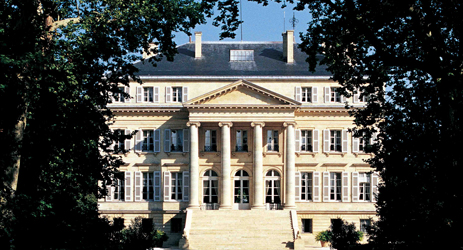Professor Denis Dubourdieu, one of the most respected winemakers and wine researchers of his generation, has died in Bordeaux.

Denis Dubourdieu, winemaker, château owner and professor of oenology, died this week following a battle with illness, the council for the Bordeaux 1855 classification has confirmed today (26 July).
‘The grands crus classés of 1855 offer their heartfelt condolences to the family,’ said council president Philippe Castéja.
One of the greats
Professsor Dubourdieu will be remembered as one of the greats of wine science and winemaking.
He leaves a considerable legacy to both Bordeaux and the wine world in general.
Most wine lovers will have unwittingly benefited from decades of Dubourdieu’s ground-breaking research at some point in their wine drinking lives.
And his contribution as château owner and consultant in Bordeaux itself – particularly on white wines and Sauternes – has been repeatedly praised by wine critics.
Dubourdieu was earlier this year named Decanter Man of the Year 2016. He attended a celebration held in his honour at Château Haut-Bailly in Pessac-Léognan last month.
In a pre-prepared speech, Dubourdieu said he wished to share the award ‘with everyone who has helped me in my long career, and also my family and friends’.
Dubourdieu’s key achievements:
· Consultant to some of the best Bordeaux wine estates, including Château d’Yquem, Cheval Blanc and Margaux (Pavillon Blanc)
· Publishing more than 200 research papers
· Teaching some of the leading winemakers in Bordeaux and beyond
· Producing wine at his own estates, including Château Reynon, Doisy-Däene and Clos Floridène. He lived at the former with his wife of 40 years, Florence.
· Founding a prestigious wine education and research centre called the Institut des Sciences de la Vigne et du Vin, in 2009.
Wine research
Born in Barsac in 1949, Dubourdieu has also either carried out or overseen seminal research on:
· The causes of premature oxidation in red and white wines
· The origin of the vegetal, green pepper taste typical of underripe grapes
· How to combat the barnyard smell of the brettanomyces yeast, or ‘Brett’
· Identifying molecules responsible for aromatics in Sauvignon Blanc grapes and other varieties
· The molecular structure of noble rot wines
· Best practice in the vineyard and during fermentation to ensure the most aromatic wines in the final glass
For this, Dubourdieu has been cited in wine research papers globally more than 7,000 times.
It has also earned him a number of nicknames, including the ‘Pope of white wine’ and ‘the professor of Bordeaux’.
Tributes to Dubourdieu
Véronique Sanders, of Château Haut-Bailly, said, ‘He is involved in every aspect of modern viticulture and vinification, and is a joy to work with. He is able to capture the true identity of a terroir and its owner, and respect the characteristics of both.’
Dominique Lafon, Domaines des Comtes Lafon, ‘Denis Dubourdieu follows in the footsteps of the legendary Bordeaux oenologists like Emile Peynaud.’
Jancis Robinson OBE MW, ‘When we were looking for a European oenology advisor for the new Oxford Campanion to Wine, Denis was the obvious choice.’
Translated by Sylvia Wu / 吴嘉溦
All rights reserved by Future plc. No part of this publication may be reproduced, distributed or transmitted in any form or by any means without the prior written permission of Decanter.
Only Official Media Partners (see About us) of DecanterChina.com may republish part of the content from the site without prior permission under strict Terms & Conditions. Contact china@decanter.com to learn about how to become an Official Media Partner of DecanterChina.com.






Comments
Submit